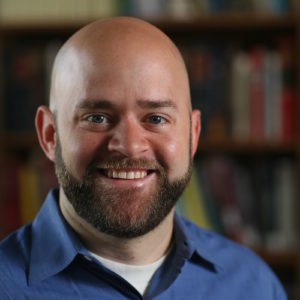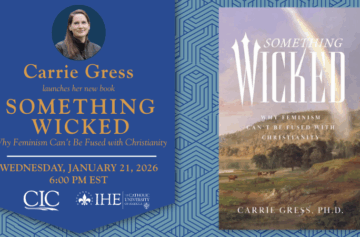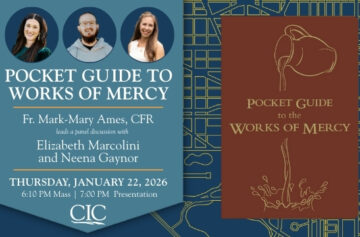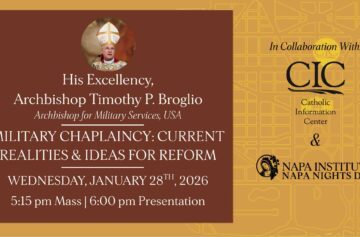
- This event has passed.
Bioethics | Culture | Government | Science
What It Means to Be Human: The Case for the Body in Public Bioethics
Monday, October 26, 2020
8:00 pm EDT - 9:00 pm EDT
Live Streamed
Online Only Event
Description
A leading expert on public bioethics advocates for a new conception of human identity in American law and policy.
The natural limits of the human body make us vulnerable and therefore dependent, throughout our lives, on others. Yet American law and policy disregard these stubborn facts, with statutes and judicial decisions that presume people to be autonomous, defined by their capacity to choose. As legal scholar O. Carter Snead points out, this individualistic ideology captures important truths about human freedom, but it also means that we have no obligations to each other unless we actively, voluntarily embrace them. Under such circumstances, the neediest must rely on charitable care. When it is not forthcoming, law and policy cannot adequately respond.
What It Means to Be Human makes the case for a new paradigm, one that better represents the gifts and challenges of being human. Inspired by the insights of Alasdair MacIntyre and Charles Taylor, Snead proposes a vision of human identity and flourishing that supports those who are profoundly vulnerable and dependent—children, the disabled, and the elderly. To show how such a vision would affect law and policy, he addresses three complex issues in bioethics: abortion, assisted reproductive technology, and end-of-life decisions. Avoiding typical dichotomies of conservative-versus-liberal and secular-versus-religious, Snead recasts debates over these issues and situates them within his framework of embodiment and dependence. He concludes that, if the law is built on premises that reflect the fully lived reality of life, it will provide support for the vulnerable, including the unborn, mothers, families, and those nearing the end of their lives. In this way, he argues, policy can ensure that people have the care they need in order to thrive.
In this provocative and consequential book, Snead rethinks how the law represents human experiences so that it might govern more wisely, justly, and humanely.
What people are saying
“Public bioethics has for too long labored under the illusion that its purpose is to maximize individual choice. Snead shows how this results in policies that are hostile to human beings as they actually are: essentially embodied, ever dependent on others, flourishing only when loving and being loved. This is required reading.”
Farr Curlin
Trent Center for Bioethics, Duke University
“What It Means to Be Human belongs on the desk of anyone concerned about the challenges ahead in the field of public bioethics. After taking a hard look at the flawed assumptions that shape most of today’s thinking, Snead outlines an approach firmly grounded in the complexity of human experience.”
Mary Ann Glendon
Author of The Forum and the Tower
“Faulty anthropology makes for faulty law, especially when the subject is human life itself. Through a meticulous analysis of American legal cases touching the beginnings and ends of life, O. Carter Snead demonstrates how our entire approach to bioethical matters ironically ignores the lived reality and value of human embodiment, pointing the way to a richer approach that will promote social solidarity. A most significant achievement!”
Leon R. Kass
Chairman, President’s Council on Bioethics (2002–2005)
About the Speaker

Professor Carter Snead is one of the world’s leading experts on public bioethics – the governance of science, medicine, and biotechnology in the name of ethical goods. His research explores issues relating to neuroethics, enhancement, stem cell research, abortion, and end-of-life decision-making.



